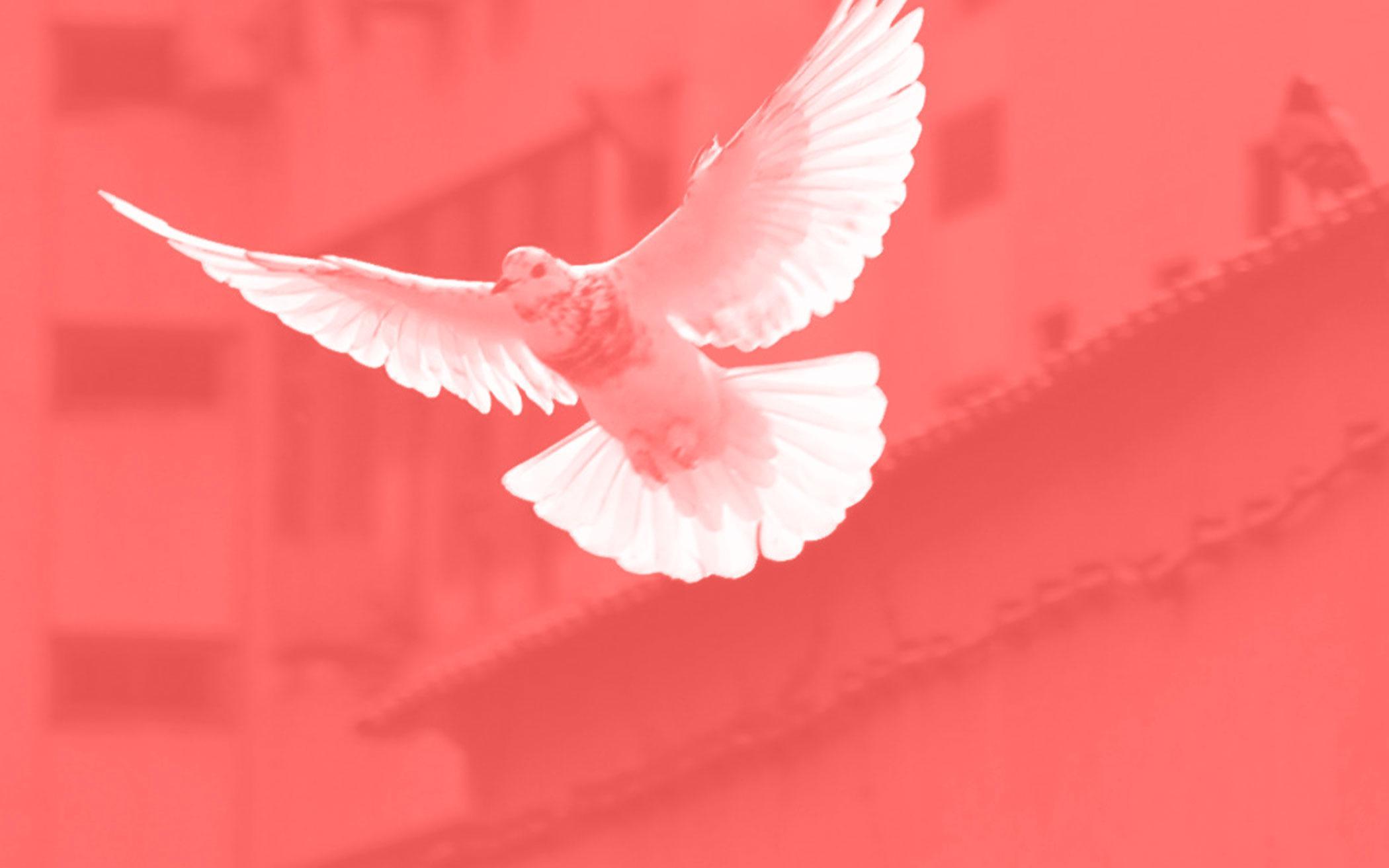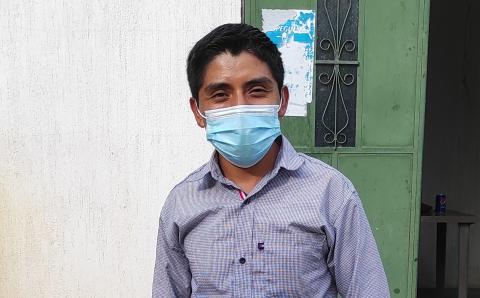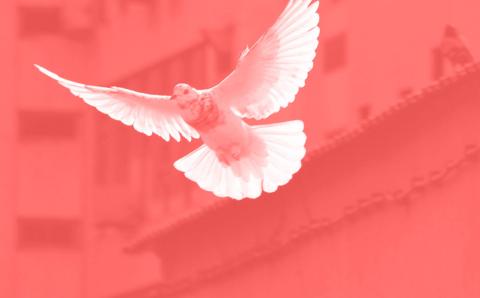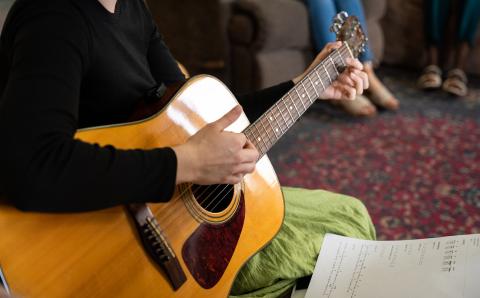A desire for peace has always been part of who I am. Among my family and friends, I aim to be a listener and a problem solver. When I came to college, I chose to major in international relations with grand dreams of being a diplomat and working for mutual understanding on the world stage. During my time in college, my understanding of what it means to bring peace has shifted away from these sorts of textbook peacemaking efforts toward a more local, intimate, and relational conception. In large part, this has been thanks to the friendships I’ve built during this time. Throughout our time together, it has been a joy to listen, share, and grow closer to each other and God’s Word.
I’ve also learned that working for the cause of peace is meaningless without first knowing the comfort and peace of living in God’s love. For me, a large part of the process of making peace with myself has been growing into acceptance of my disability. I have cerebral palsy, a disability that affects my balance, my muscle coordination, and the way I move. For many years, I only thought of my diagnosis as an extra challenge I had to overcome. However, thanks to conversations I’ve had with many people wiser than myself, I’ve learned to see things differently. In this journey, I’ve also broadened my theology, and I now believe that God chose me to bear his image in my particular body for a reason and that I am not “less than.”
A richer understanding of my whole self has helped me move closer to God and to other people in recent years. The personal peace I’ve worked hard to build has made me more thoughtful and accepting of others who are different in other ways. It has allowed me to build deeper relationships and given me the confidence to share this facet of my story.
This place of peace was challenged during a recent family trip to Puerto Rico. My family was buying groceries for the next several days when I was suddenly stopped by a woman clutching a Bible. “¿Qué te pasó, chico?” she asked. Whether in a rude or a concerned tone, it’s the same question I’ve gotten from strangers my whole life: “What happened to you?” I never quite know how to respond.
My memory of this incident is a confused blur; before I knew it, I was being prayed for by a complete stranger in the middle of a Walmart aisle. After writing down some Bible verses, she let me leave, telling my parents to “just declare your son healed” as she walked away. The entire experience was very uncomfortable, and I felt tears well up as we walked to the parking lot.
Disability scholar Amy Kenny calls people like these “prayerful perpetrators” for the ways they unknowingly hurt disabled people. In her conviction that I was “less than,” the woman’s “kindness” spoke loud and clear: You are not welcome. Despite intending to bring me comfort, her actions worked to destroy the peace I’ve made with how I live and move throughout the world. I left the encounter feeling shaken and very much not at peace.
Only days later, I had a second experience that was markedly different. I was standing waist-deep in the ocean outside our rented condo, soaking in the sunshine for a few more precious hours on one of the last days of our vacation. An older man came down the beach and waded out to join me. He introduced himself as José, and we struck up a friendly conversation.
Less than 30 seconds into our meeting came the dreaded question again: “¿Qué te pasó, chico?” I took a deep breath, bracing myself to relive the horrible events of a few days prior. However, as I launched into my usual explanation that I was born this way, José simply nodded and shrugged. “Entonces, ya estás acostumbrado,” he said. “So, you’re used to it by now.” This simple acknowledgement shocked me. We then quickly moved on to other topics, chatting casually for about an hour while enjoying the coolness of the waves.
José’s act, though small and certainly long-forgotten by him, will live with me forever. I’ve rarely felt so seen and accepted by a stranger. After what had happened just a few days before, the contrast was especially striking. As I’ve reflected on these mirror-image encounters in the time since, I’ve realized that José’s sort of hospitality is necessary for those who want to promote Christ-like peace.
It's this same peacemaking that I see in the story of Abraham and Sarah, who unknowingly welcome angels in Genesis 18. They offer their guests shelter and respite from the desert heat. Abraham orders a calf to be roasted, and Sarah makes more than enough bread to feed them all. I believe this sort of hospitality toward a stranger is a Christian peacemaker’s best tool.
Jesus seems to think so too, referencing Sarah’s act of feeding her unknown guests in Luke 13:20 when describing the kingdom of heaven. That kingdom, he says, is like yeast that a woman worked through a large amount of dough. The hospitality and acceptance shown by Abraham, Sarah, Jesus, and José are the key elements of Christian peacemaking. Rather than the kind of peace diplomats work for that involves handshakes in front of cameras and medals given out on stage, this interpersonal peacemaking-via-hospitality is something all Christians are called to practice.
As I move forward from these opposing moments of othering and welcome, I hope to live in a way that welcomes those I meet into a place of shared peace. Like a Puerto Rican Good Samaritan, José with his small kindness showed me that anyone can act to share Christ-like peace—no prayers in a Walmart required.
About the Author
Ethan Meyers, 22, is from Holland, Mich., and currently lives in Washington, D.C. He is an editorial assistant at Sojourners magazine.









